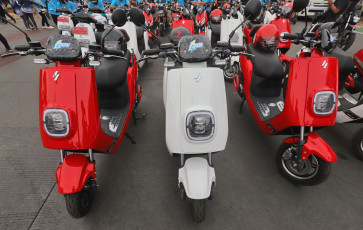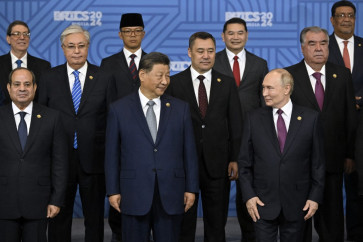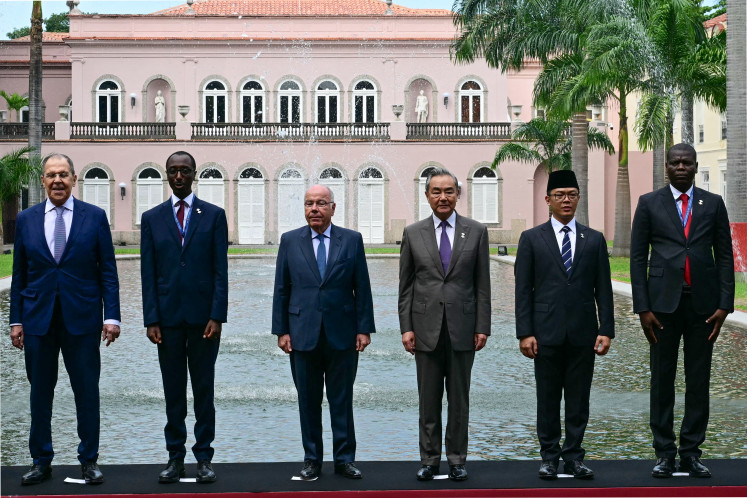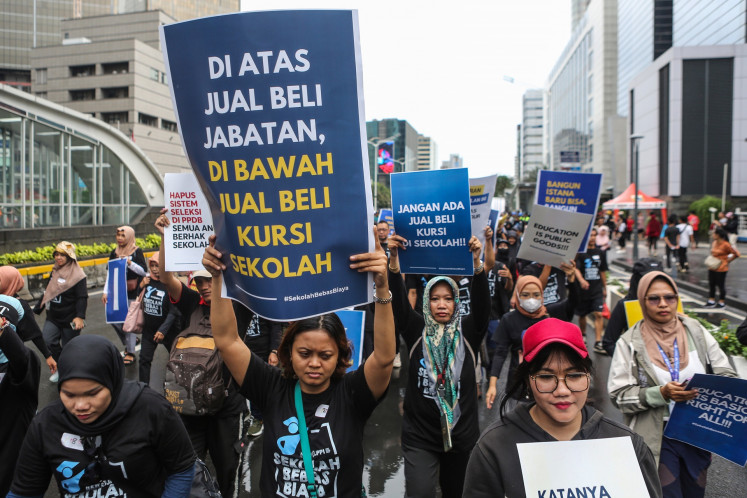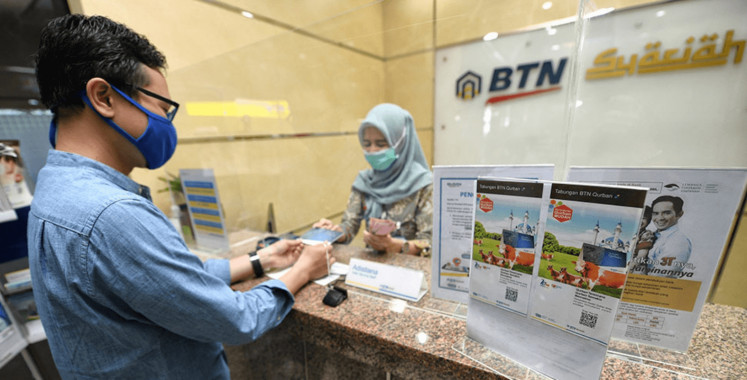Women: Life-affirming agents or bombers who kill?
In Asian societies you’re expected to respect your elders and learn from them
Change text size
Gift Premium Articles
to Anyone

I
n Asian societies you’re expected to respect your elders and learn from them. Well, at almost 64, maybe I’m a new-fangled Asian as I respect young people, and love to learn from them as well!
For example, when my son Aditya was a teenager, he opened me to the world of science fiction. I was quickly converted: unlimited imagination, alternative realities, idealized or wacky worlds — what’s not to like?
This youthful nudging happened again recently, when Nur Janti, a 24-year-old reporter from Historia magazine, the only popular history journal in Indonesia, interviewed me about the Voice of Concerned Mothers (SIP). She’s writing a series on women’s movements in Indonesia to commemorate 20 years of the Reform Era this month.
SIP gained worldwide fame in February 1998, when we — female activists, academics, housewives — demonstrated against exorbitant prices, especially milk, which was a covert way of protesting against the authoritarian New Order regime. We were all feminists but used “mother” and “milk” as a camouflage for our real cause: opposing New Order oppression. As a result of the demonstrations, the withdrawal of support from his power base, and the economic crisis that preceded it, Soeharto resigned on May 21 that year.
Then at one point, Janti asked me, “What about the Women’s Coalition for Press Freedom [KPKP]? Weren’t you part of that as well, besides SIP?”
I was mildly stunned by Janti’s reminders. First that this year marks the 20th anniversary of Reformasi (already?). Second, that yes, the KPKP was also important especially considering that it happened in 1994, when the New Order was still very powerful.
On June 21, 1994, the Information Ministry revoked the publishing licenses, known as SIUPP, of Tempo, Editor and DeTik. Tempo was accused of “violating the journalistic code of ethics to the point where it affected national security”. The offending article was about the controversial purchase of 39 warships formerly part of the erstwhile East German navy.
More technical reasons were given for revoking the SIUPPs of the news magazine Editor and the news tabloid DeTik: failure to comply with registration procedures. The truth is they, especially DeTik, had been making pointed criticism of the government, exposing injustices caused by government regulations and actions.
The events surrounding KPKP in 1994 are pretty vague in my mind. There has been a lot of documentation about SIP and the Women’s Coalition for Justice and Democracy (KPI), but scant trace of KPKP. I decided to email a few friends: Tati Krishnawaty (Solidaritas Perempuan), Gadis Arivia (Jurnal Perempuan), Wardah Hafidz (Urban Poor Consortium), Nursyahbani Katjasungkana (LBH — Legal Aid, and LBH Apik — Legal Aid for Women and Children), Dian Kartikasari (KPI) and others, to jog their memory about KPKP.
Together we started to make a patchy reconstruction of KPKP, which was formed just a few days after the ban. It’s not clear whose idea KPKP was originally, but basically, a group of women activists banded together.
We held KPKP meetings at the LBH office where Nursyahbani was then one of the directors. Banners, posters, leaflets, statements, purple paper flower pins and other demonstration paraphernalia were made in different locations. Ideas and strategies were spontaneous, under a collective leadership, with everyone on the front line.
We took to the streets — wearing white, and purple paper flowers as a symbol of women’s resistance against oppression. We also had an audience with the military faction in parliament, protesting against the bans, and also questioned the dual-function of the military. We asked them, is it a policy of the military to use violence as a political tool, not only against defenders of a free press, but also against labor, students and peasants? Imagine a group of women asking these kinds of questions, full-frontal, to the military in a military dictatorship?
But it wasn’t just the state apparatus we were up against. We were also angry and frustrated with our (male) friends in the media, who we were risking life and limb for, whose journalism was still fraught with gender bias. In the reports Tempo made about the demonstrations, they didn’t mention KPKP and women’s contribution to defending press freedom at all. Ironic or what?
After the bans, journalists formed the Alliance of Independent Journalists (AJI), to counter the government-controlled Journalists Association of Indonesia (PWI). However, in their reports, including the Semangat Sirnagalih (report on the 20th anniversary of the AJI), KPKP was given scant mention. But even in 1994, because we realized the importance of press freedom for democracy, we swallowed our anger and frustration for the sake of the greater good. Typical of a woman’s attitude right?
This small exercise in attempting to write the history of KPKP, however patchy for now, reminds us, we really need to write our HerStory, because so much of HiStory is so male-oriented and dominated. The women’s movement in Indonesia has had a long life span, but we often forget to write about it. Time to rectify this mistake! Thank God for young women like Janti, who demand that we do so.
As I am writing this column, a series of brutal terrorist attacks has occurred: First the one at the Mobile Brigade headquarters (Mako Brimob), where five police officers were slaughtered, their throats slit. Then there were the horrific church bombings in Surabaya and neighboring Sidoardjo.
I was so distraught by it all, I could barely write. What marked these tragedies was that women were involved, as terrorists, dragging their children along in their suicide missions. Is this where 20 years of reformasi has brought us to? In our SIP demonstration we used motherhood as life-affirming agents. As Tati said, it’s the big spirit of a concerned ibu, not as biological mother, but as the giver, carrier and sustainer of life itself.
And now, in the name of a deranged notion of religion, mothers become bombers and killers, as Hera Diani wrote in Magdalene (From Mothers to Bombers: Women’s Role in Radicalism, May 9, 2018).
We have come a long way — tragically, not in the way we had hoped for. Did we, through the KPKP, SIP, KPI and others, make sacrifices for nothing?
Hopefully, if we reconstruct our histories, we, the first generation of feminists in Indonesia, can still give hope to young women like Janti, who are so eager to learn. They are after all, Indonesia’s future. A few bombs should not be allowed to snuff out their hopes and ours, for our beloved nation.
_________________________
The writer is the author of Sex, Power and Nation.


